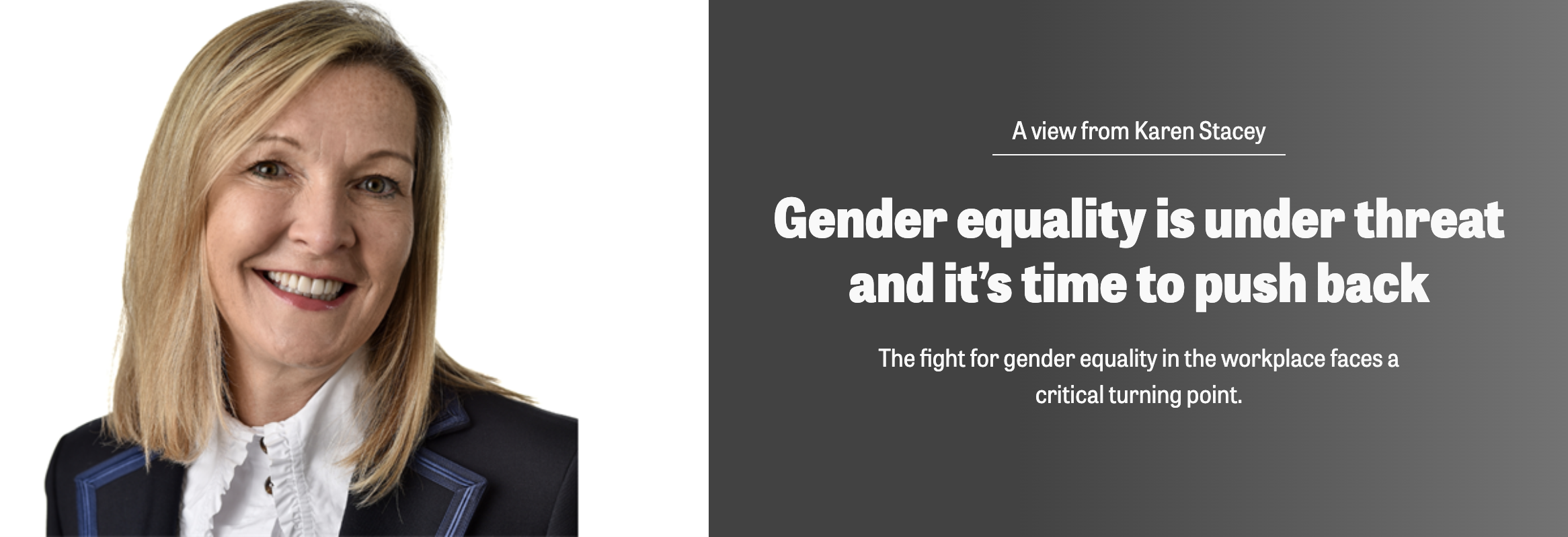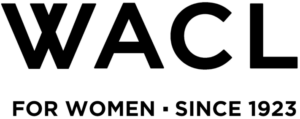
Gender equality is under threat and it’s time to push back.
The fight for gender equality in the workplace faces a critical turning point.
As International Women’s Day dawns, it’s a poignant reminder to us all that equality is not guaranteed and progress that has already been made can easily be undone.
The recent attacks on DEI are a warning sign our industry can’t afford to ignore.
As leading global brands roll back their DEI initiatives for fear of retribution or sanctions, it suggests that backtracking on gender equality is not only acceptable but also beneficial to business.
We are witnessing the very real impact of the political decisions across the pond, combined with a growing global backlash against gender equality progress at work and at home, and a widening gap between the way young men and women understand the world.
But gender equality is not just about women. It benefits everyone, but the false assumptions, big blind spots and opinions masquerading as facts that have entered the conversation are damaging all of us.
And that’s something we, as an industry, urgently need to address.
That starts by debunking three of the most persistent myths that continue to warp the discussion around DEI.
Myth one: inclusion is an attack on meritocracy
Was the world more fair before DEI initiatives were introduced? No. Currently, it doesn’t operate on pure meritocracy, where everyone is judged based solely on their contributions.
Women are still far less likely than men to attain their very first promotion to a manager role – a situation that’s not improving. And high-performing women tend to receive feedback that is based more on their personality than their performance, and is much more negative than feedback given to their male counterparts. Studies also consistently show these kinds of barriers and biases tend to have a disproportionate impact on women of colour, members of the LGBTQIA+ community or other marginalised groups.
Now, powerful voices are successfully arguing that acknowledging and overcoming these barriers and biases is somehow anti-meritocratic – that creating a more level playing field means giving a free pass to someone who doesn’t deserve it.
That’s simply not true.
Inclusion works to remove the very real barriers that are holding so much talent back. Barriers that stem from the fact that our work practices are largely built for the people who’ve dominated the workforce for generations, which is not representative of the reality today.
Myth two: opinions are as important as facts
Opinions are valuable, and it’s crucial we listen actively – especially when we don’t agree. But we must ensure they are rooted in robust data and facts. Despite this new aggressive rhetoric gaining a growing amount of airtime, believing something to be true or wanting it to be true can’t be allowed to replace a robust, evidence-led approach.
We need to actively drive awareness of the facts around the current state of gender equality in our industry, and to call out misinformation.
Studies show that women tend to overindex in the qualities that have been proved to make for effective leadership. Yet WACL analysis from The 50% CEO Playbook shows that even if we double the recent rates of progress, it’d be 2045 before we see women taking up half of the top jobs across our industry.
By combatting assumptions around key issues, from the effectiveness of flexible work policies to the impact of women’s health on career progression, we can challenge and rectify this narrative.
Myth three: gender equality is a threat to men
What often gets lost in the DEI conversation is that, ultimately, gender equality benefits everyone – including men.
Countless studies show that companies with a more gender-diverse workforce perform better, driving creativity, innovation and customer satisfaction. Whether it’s businesses, countries, friendships or relationships, there’s a clear correlation between gender equality and better health, wealth and happiness.
So when powerful voices encourage men to see diversity and gender equality as a problem, we need to counter that by painting a picture of the positive, gender-balanced future that is achievable and beneficial for everyone.
We operate in an outcome-focused industry, and the outcomes of gender-balanced businesses speak for themselves – it’s a win-win for everyone.
As voicing the benefits of a more inclusive and equal workplace becomes more challenging, or in the case of the US, downright risky, it’s all the more vital.
This is an important moment in time. Our purpose at WACL – to accelerate gender equality in our industry – feels more pertinent than ever, but we can’t achieve this without your help.
We need everyone to play their part, and not sit on the sidelines hoping someone else takes up the mantle.
There’s so much that each of us can do to use what power and influence we have to make our industry better.
There’s so much to gain. But we can’t do it alone.
This article was written by Karen Stacey and appeared in Campaign on 4th March.
